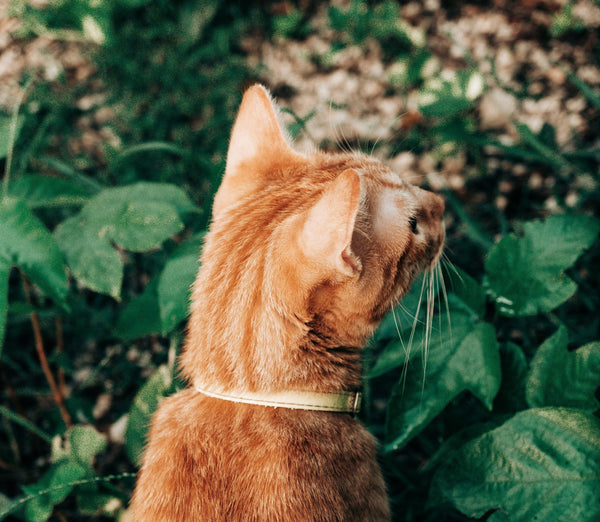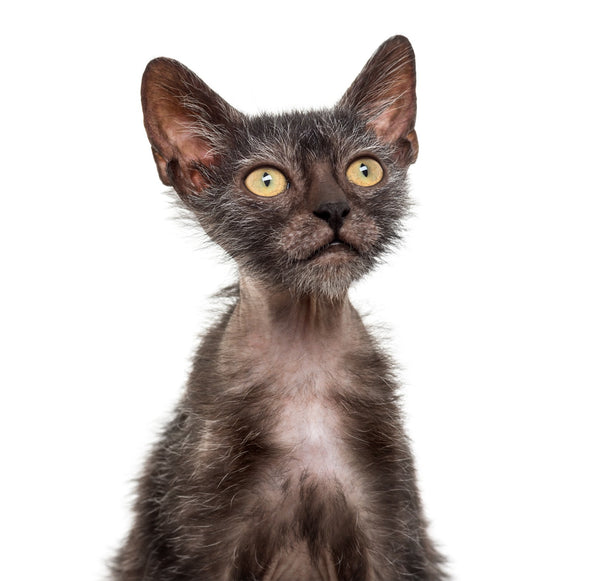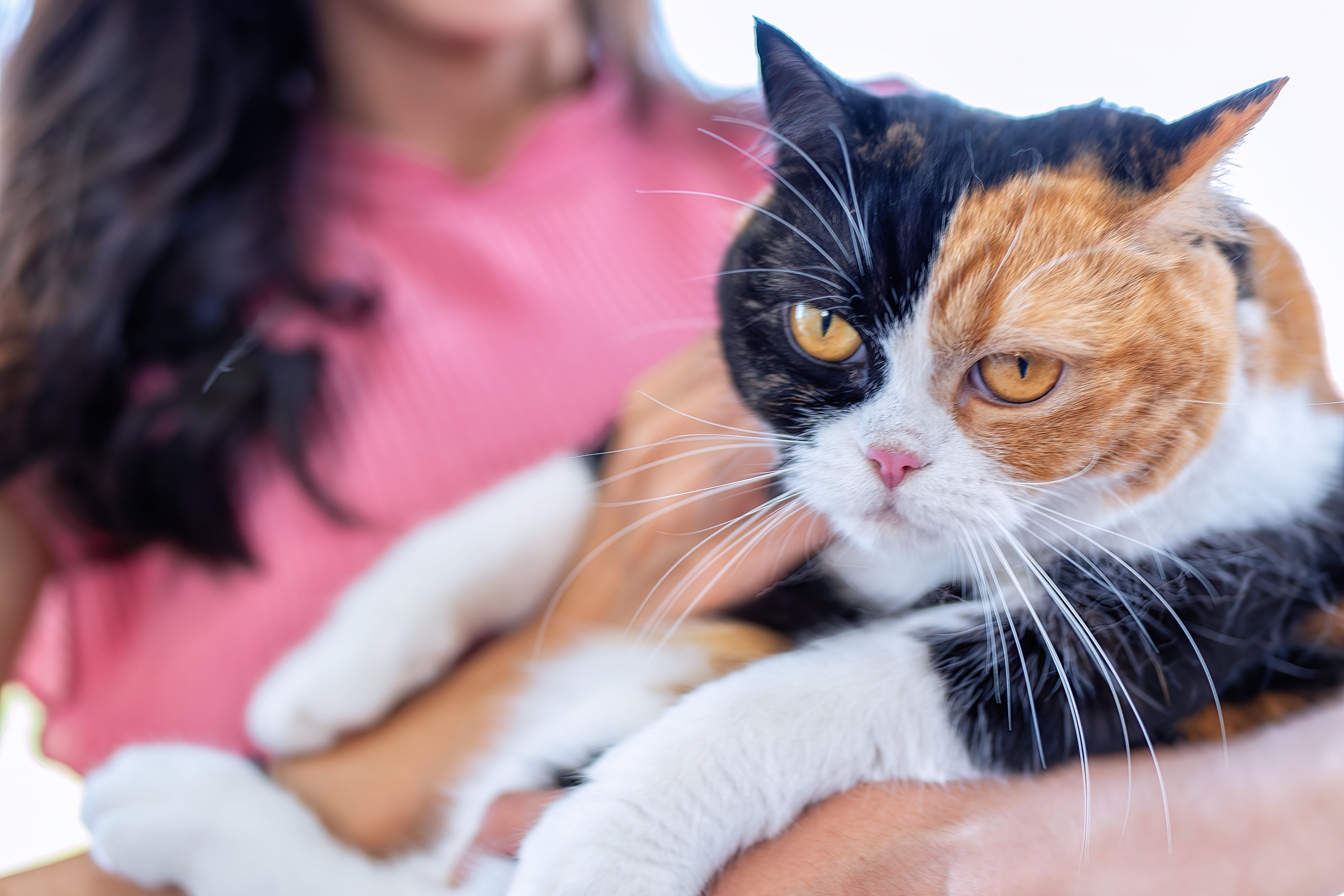Cats are notorious for their impeccable grooming habits, but even the most fastidious felines can suffer from an array of skin issues that may cause discomfort and distress. From allergies to environmental irritants, the culprit behind the underlying cause of your cat's skin problems can often be challenging to diagnose.
To keep your beloved pet's skin healthy and glowing, it's essential to understand the factors that contribute to skin issues and how to prevent them.
This in-depth guide to skin problems in cats reveals seven effective strategies to help minimize and prevent any discomfort. Whether your whiskered friend is an indoor lounging aficionado or an outdoor adventurer, these tips will help ensure they're as comfortable in their skin as they deserve to be.
Why Cat Skin Health Matters
Before we dive into the secrets of reducing common cat skin problems, it's crucial to understand why maintaining your cat's skin health is so important. Like humans, a cat's skin serves as a barrier against external pathogens and environmental irritants. A healthy coat and skin help protect your cat from infections, burns, cuts, and even sun damage.
Moreover, keeping your cat's skin in excellent condition can prevent a range of uncomfortable and potentially dangerous skin conditions, such as dermatitis, eczema, skin infections, and hair loss. Plus, healthy skin means a gleaming coat that's a joy to stroke!

1. Proper Nutrition
Just like humans, cats' skin health is directly influenced by their diet. A balanced, high-quality diet is the foundation of healthy cat skin conditions. Essential fatty acids, such as omega-3 and omega-6, are crucial for skin function and can be found in fish oils.
How Can I Ensure a Balanced Diet for My Cat?
Cats need a diet rich in protein, with essential amino acids and vitamins. Foods high in omega fatty acids and antioxidants promote a glowing coat and healthy skin. Look for cat foods that list sources of omega fatty acids, such as fish oils, on their ingredient list.
What Are Recommended Nutrients for Healthy Cat Skin?
Omega-3 and Omega-6 Fatty Acids
Omega-3 and omega-6 fatty acids are essential for maintaining healthy skin in cats, as they help regulate inflammation and improve skin barrier function. These fatty acids also aid in the production of natural oils that keep your cat's coat shiny.
Vitamin E
Vitamin E is another crucial nutrient for promoting healthy skin in cats. It acts as an antioxidant, protecting the skin from environmental damage and promoting cell regeneration.
Biotin
Biotin, also known as vitamin B7, is essential for maintaining healthy skin and coat in cats. It helps your cat's body metabolize fats and proteins, which are crucial for maintaining a glossy coat.
Zinc
Zinc is a mineral that plays a vital role in maintaining healthy skin. It helps regulate cell turnover and promotes wound healing.
Protein
Protein is the building block of healthy skin and coat in cats. It supports cell growth and repair, maintaining a strong skin barrier.
2. Regular Grooming
Grooming is not only about keeping your cat looking pristine—it's also an essential part of skin health. Regular brushing helps to remove loose hair and debris that can cause skin irritation. Additionally, grooming is a relaxing and bonding activity for you and your cat.
What Are Some Brushing and Bathing Tips?
Here are some expert brushing and bathing tips for your cat:
- Choose a brush specifically designed for cats, such as a slicker or bristle brush.
- Brush your cat's coat gently, in the direction of hair growth.
- Use a damp cloth to clean your cat's face and ears, avoiding getting water in their eyes or ears.
- When bathing your cat, use a mild shampoo specifically formulated for cats.
- Rinse your cat thoroughly, making sure all soap residue is removed from their coat.
- After bathing, use a towel to dry your cat and keep them warm until their coat is completely dry.
- Use products specifically designed for cats
Importance of Flea and Tick Prevention
Fleas and ticks are common contributors to skin problems in cats. Regular use of flea treatments and tick prevention methods is paramount.
Consider a veterinarian-approved monthly flea and tick prevention product to protect your cat from these pesky parasites and subsequent bacterial infections.

What Are Some Flea and Tick Treatments for My Cat?
- Topical flea treatments: These are applied directly to your cat's skin, usually on the back of their neck.
- Flea collars: These are worn around your cat's neck and protect against fleas and ticks.
- Oral medications: Some oral medication options can kill fleas and prevent them from reproducing, breaking the flea life cycle.
3. Environmental Factors
The environment in which your cat lives can have a significant impact on their skin health. Managing indoor air quality and ensuring outdoor protection are important strategies against bacterial skin infections.
Managing Indoor Air Quality
Dry or dusty environments can exacerbate skin problems. Using a humidifier can help maintain an optimal environment for your cat's skin. Also, keeping your home clean and free of dust and allergens can reduce the risk of any skin diseases and irritation.
Sun Protection for Outdoor Cats
Sunburn and skin cancer are risks for cats who spend time outdoors. Ensure your outdoor space has shaded areas, and consider cat-safe sunscreen if your cat is prone to sun exposure.
4. Stress Management
Cats are sensitive creatures, and stress can manifest physically in their skin. Recognizing signs of stress and providing a calm, stress-free environment can help maintain healthy skin.
What Are the Symptoms My Cat Is Stressed?
Excessive Grooming
Cats may over-groom themselves as a coping mechanism for stress, leading to skin irritation and hair loss. Keep an eye on your cat's grooming habits and consult with your veterinarian if you notice excessive licking or grooming.
Changes in Behavior
Stress can also manifest in changes in behavior, such as hiding, decreased appetite, or increased aggression. If you notice any significant changes in your cat's behavior, consult with your veterinarian to address potential stressors.
Irritated or Itchy Skin
Stress can also cause skin irritation and itching. With regular grooming, you can keep an eye on any changes in your cat's skin and address them promptly.

Hair Loss or Bald Patches
Stress can lead to hair loss or bald patches in cats. Keep an eye on your cat's coat and consult with your veterinarian if you notice any changes.
How Can I Help My Cat Relax?
Here are some ways to help your cat relax and reduce stress:
- Provide a comfortable, safe space for your cat to retreat to when feeling overwhelmed.
- Use calming supplements to help your cat feel more at ease.
- Regularly engage in playtime and exercise with your cat to release tension and promote bonding.
- Stick to a consistent routine for feeding and grooming to create a sense of security for your cat.
5. Allergies and Sensitivities
Just like people, cats can have allergic reactions to a variety of substances, including food, plants, and environmental factors. Allergies and sensitivities can cause a range of skin problems, from mild irritation to severe lesions and infections.
What Are Common Allergens Affecting Cat Skin?
Flea Bites
Flea saliva is a common allergen that can cause severe itching and irritation in cats. Regular flea prevention is essential for managing this allergy.
Food Allergies
Many commercial cat foods contain ingredients that can trigger allergies in some cats. Consult with your veterinarian to determine the best diet for your cat if food allergies are suspected.
Contact Allergens
Cats can be sensitive to certain fabrics, cleaning products, or plants that come in contact with their skin. Identifying and removing these allergens can help alleviate cat skin problems.
How Are Cat Allergies Treated?
Treatment for allergies in cats may include:
- Avoiding the Allergen: If the source of the allergy is known, avoiding it is the most effective treatment. For example, switching to a hypoallergenic diet if food is the culprit.
- Medications: Your veterinarian may prescribe medications such as antihistamines or steroids to help alleviate allergy symptoms.
- Immunotherapy: In severe cases, your cat may benefit from immunotherapy shots that can desensitize them to specific allergens over time.
6. Veterinary Care
Regular veterinary check-ups are crucial for maintaining your cat's health, including their skin health. Your vet can guide preventive care and treat any emerging skin problem.
Regular Check-ups
Annual check-ups are recommended for cats, though more frequent visits might be necessary for kittens or senior cats. These visits are an opportunity for your vet to examine your cat’s skin and address any concerns.

Treatment Options for Skin Problems
If your cat does develop a skin issue, your vet can prescribe treatments such as medicated shampoos, topical ointments, or oral medications. Follow your vet's recommendations and attend all follow-up appointments to monitor your cat’s improvement from skin disease.
7. Supplements
Adding supplements to your cat's diet can be a beneficial part of maintaining their skin health. Cat-focused supplements often provide additional support for areas that may be lacking in their diet.
Top Cat Skin Supplements
Here are some popular cat skin supplements that can benefit your feline friend:
- Fish Oil: This supplement contains omega-3 fatty acids, which can help reduce inflammation and improve overall skin health.
- Probiotics: Probiotic supplements can help promote a healthy digestive system, which is beneficial for managing allergies and food sensitivities.
- Vitamin E: Vitamin E is an antioxidant that can help improve skin health and support the immune system.
- Coconut Oil: Coconut oil contains lauric acid, which has anti-inflammatory properties and can improve skin conditions such as itching and dryness.
Conclusion
Taking care of your cat's skin is an essential part of their overall health and well-being. By following these tips, you can help prevent and address common skin issues in cats and ensure that your furry friend stays happy and healthy for years to come.
Remember to consult with your veterinarian if you have any concerns about your cat's skin condition or if you notice any changes in their skin health. With the right care and attention, your cat's skin can remain healthy and glowing!













